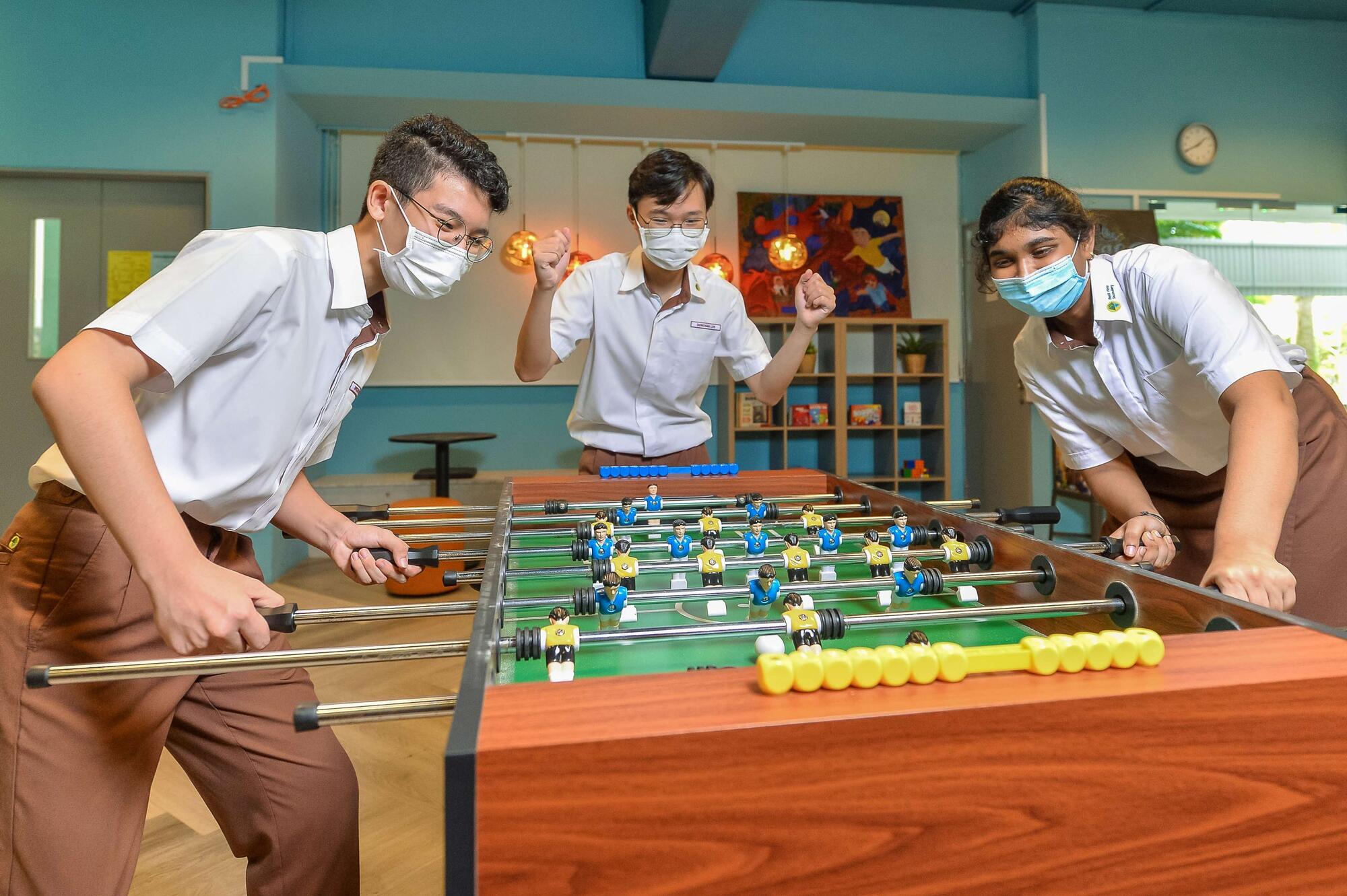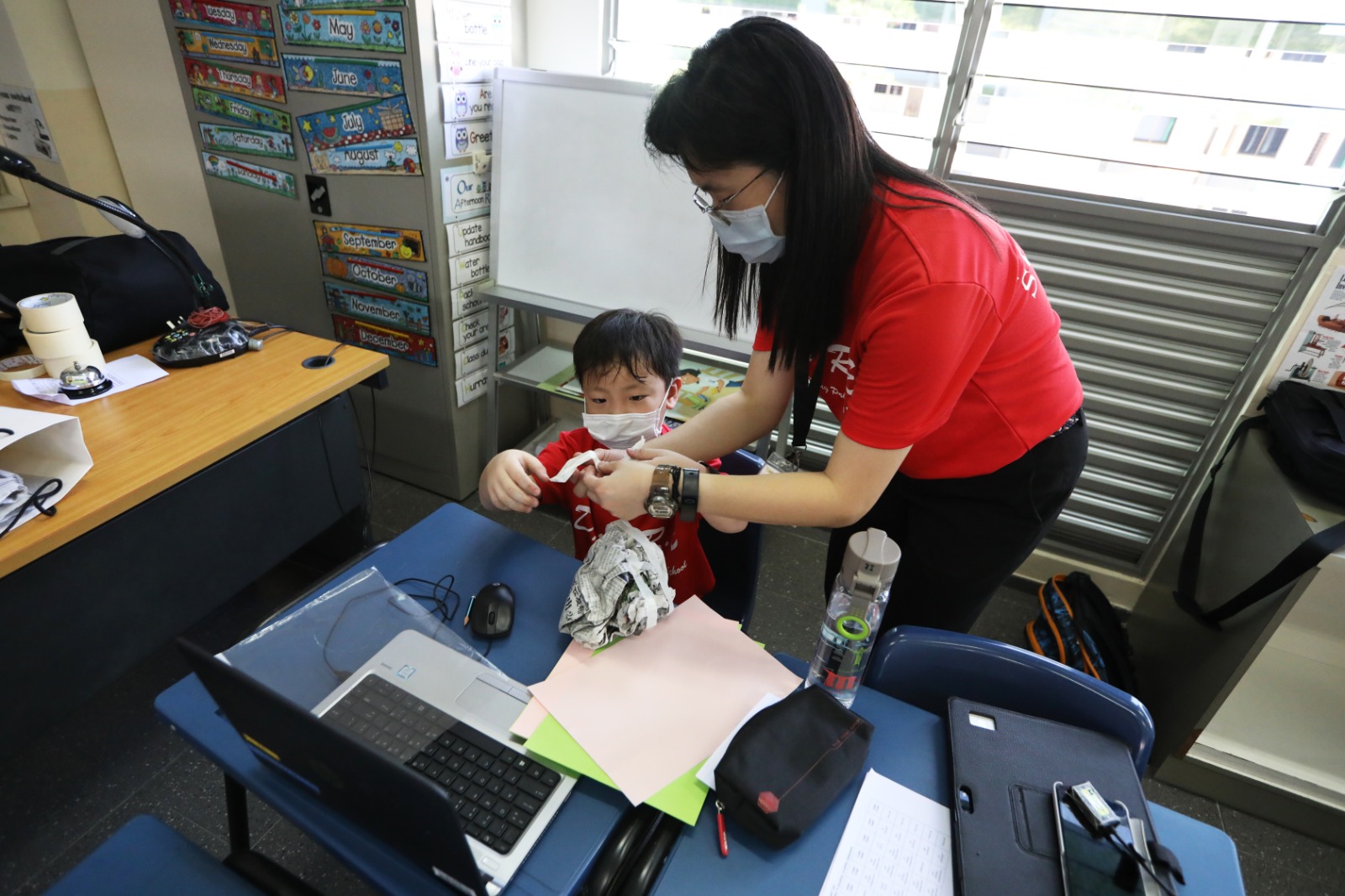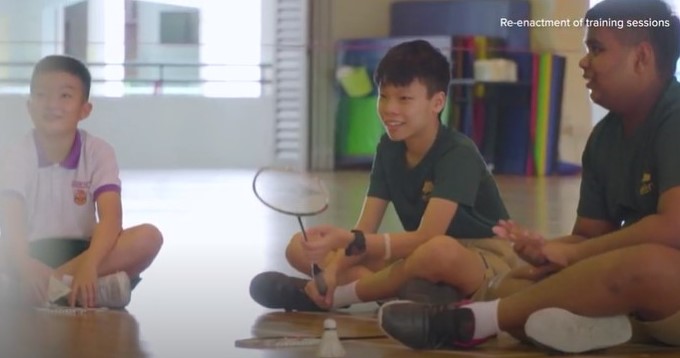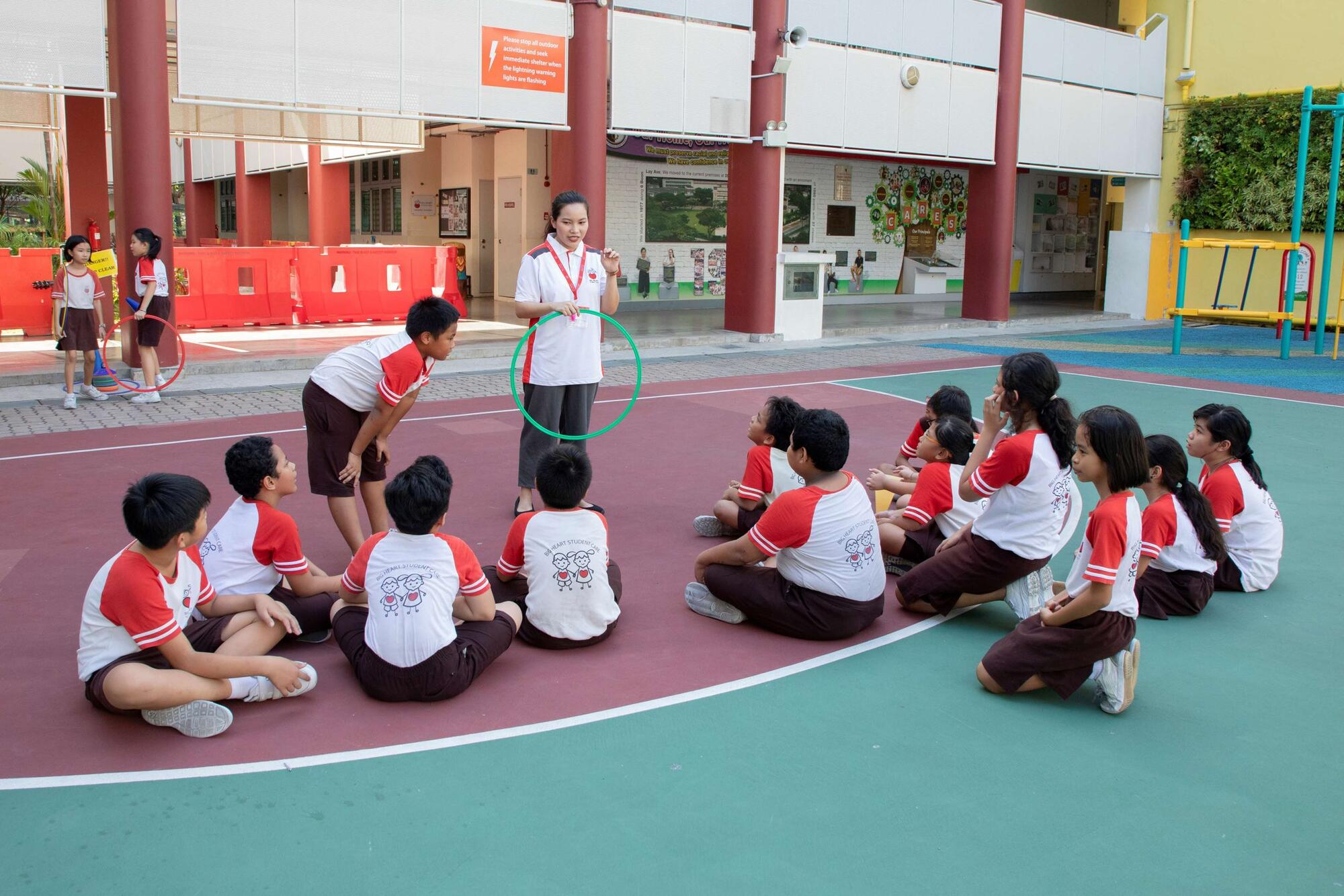We meet Serangoon Garden Secondary School’s Head of Student Management, Mr Shahul Hameed S/O Kuthubudeen, to understand how secondary schools like his are joining forces with community partners as part of MOE’s UPLIFT efforts to support underprivileged students and their families.
For one student in Serangoon Garden Secondary School (SGSS), misfortune came knocking at the tender age of 15. At the time, his mother fell ill and his father also lost his job.
As the family finances began to dwindle and hospital visits became more frequent, the Secondary 3 student was saddled with extra responsibilities. He had to accompany his mother for hospital appointments, and even attend meetings on payments for their rental flat.
All this came to light when his school attendance suffered.
“We realised that this boy needed support,” says Mr Shahul Hameed S/O Kuthubudeen, Head of Student Management at the school. “But we couldn’t just help him, we had to help his whole family.”
Thankfully, the school could tap on a key community partner via the Ministry of Education’s (MOE’s) UPLIFT efforts for students from disadvantaged backgrounds. Officers from the Ministry of Social and Family Development’s ComLink1 initiative, that supports families living in public rental housing, stepped in and appealed to the Housing and Development Board to reduce the family’s rent. It also provided employment support to the boy’s father, which eased the family’s financial burden.
“The boy was happier. He’s now coming back to school regularly,” says Mr Shahul with a smile.
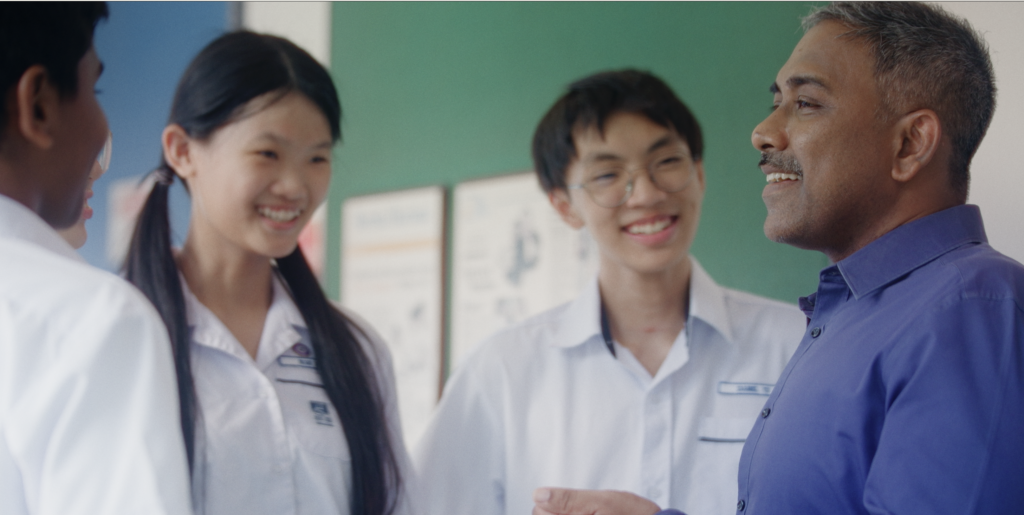
MOE’s UPLIFT efforts serve to support students like the SGSS boy and their families through an integrated, holistic approach that combines the school’s resources with those of community partners. In other words, no one gets left behind. As Second Minister for Education Dr Maliki Osman said in a 2022 Parliament speech, MOE “is committed to ensuring that students are not limited by their starting points in life… Support goes beyond the school”.
Tackling the root cause of absenteeism in teens
As children enter their teenage years, they face new challenges – from making new friends to forging their own identity.
But for some, these growing pains are amplified by family issues, poor finances, and in some cases, having to “parent” their younger siblings.
In serious cases, these stumbling blocks could even lead to long-term absenteeism from school. Schools like SGSS keep a sharp eye out for such students by constantly reviewing data such as attendance, behavioural issues, and family background.
Put together, these data points “tell a powerful story about the student”, Mr Shahul explains. The work then begins to bring these pupils – and their families – into the UPLIFT Community Network (UCN), where they can access community support.
One such community partner is Ms Eileen Chia, a Town-Level Coordinator (TLC) for schools in Sengkang, Serangoon and Hougang. As a TLC, Ms Chia reaches out to students at risk of developing long-term absenteeism in schools to understand their situation, and subsequently connect them and their families to the right resources.
She recalled a case in which a secondary school student who self-harmed was referred to her for additional help outside of school. The teenager was unable to cope with her father’s passing away, which left her mother to raise three children by herself. Her youngest sibling also had special needs and mobility issues.
Ms Chia worked with the school to connect the student with more psychological help from REACH, a service under the Institute of Mental Health which caters to students. She also helped the family secure rations to meet their basic needs.
While the effects of the different levels of help are ongoing, some wins are already apparent. “The child is back in school and sitting for her exams right now,” says Ms Chia. “I was very glad to hear that.”
UCN also relies on volunteers like IT professional Anjali Kumar. As a Family Befriender, she conducts home visits with families living in rental flats about thrice a month.
“Most of the time, these families are just looking for a listening ear,” she says. As a mother herself, she also occasionally provides advice and academic coaching to the children of these families, especially those struggling to find the motivation to attend school. “Sometimes, teenagers are not very keen to take up your feedback,” she admits. “But you do as much as is within your capacity.”
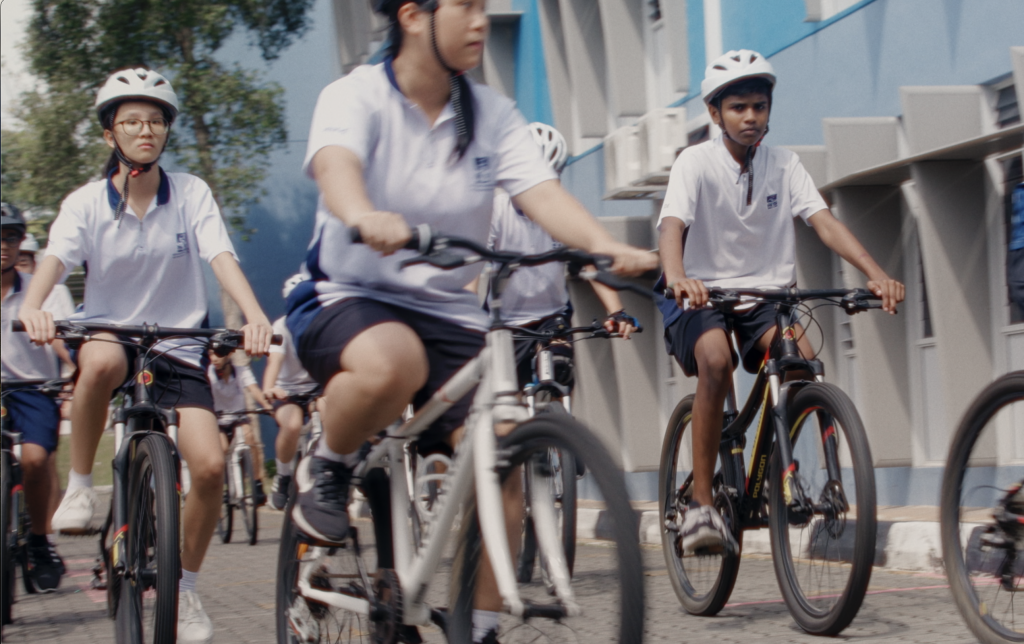
Today, the UCN has integrated with MSF’s ComLink+ to enhance social service delivery and improve coordination across programmes. This integration has strengthened partnerships between schools and town-level Social Service Offices (SSOs) and allowed these students and their families to receive holistic and customised support, including from other agencies and community-based resources.
Under ComLink+, dedicated family coaches (now integrated with the role of the TLC) from the SSOs support the students’ families to co-develop customised action plans, coach, and motivate them towards achieving their goals. They act as a consistent touch point to help families navigate different social support services. Family coaches also collaborate with schools to complement support for the children’s educational needs.
Retaining and reintegrating long-term absentees
While schools draw support from community partners and resources, teachers work closely with the students on a one-to-one basis and through after-school programmes.
At the primary school level, students in need have access to school-based Student Care Centres. In around 120 secondary schools, the GEAR-UP programme offers students mentoring and interest-based activities. These schools also have dedicated spaces that function as after-school engagement centres.
SGSS, for instance, runs a drop-in centre staffed by student counsellors who organise activities every afternoon. These are especially useful for students who show worrying signs of irregular attendance. Activities like cycling, tchoukball, and even street dancing, have proven popular.
Beyond occupying the students, these programmes introduce what Mr Shahul terms a “protective factor” into their lives. Throughout the programme, students are accompanied by teachers who help to look out for them.
There are cases where, after a long period of absence, a student may find integrating back to school life too difficult, which leads to further avoidance of school. SGSS pours extra resources into re-integrating these students via its signature Project 5 Degrees (P5D), a school-within-a-school concept that allows its participants to attend school in a small group, and learn at their own pace with tailored coaching, until the student is ready to rejoin his or her class.
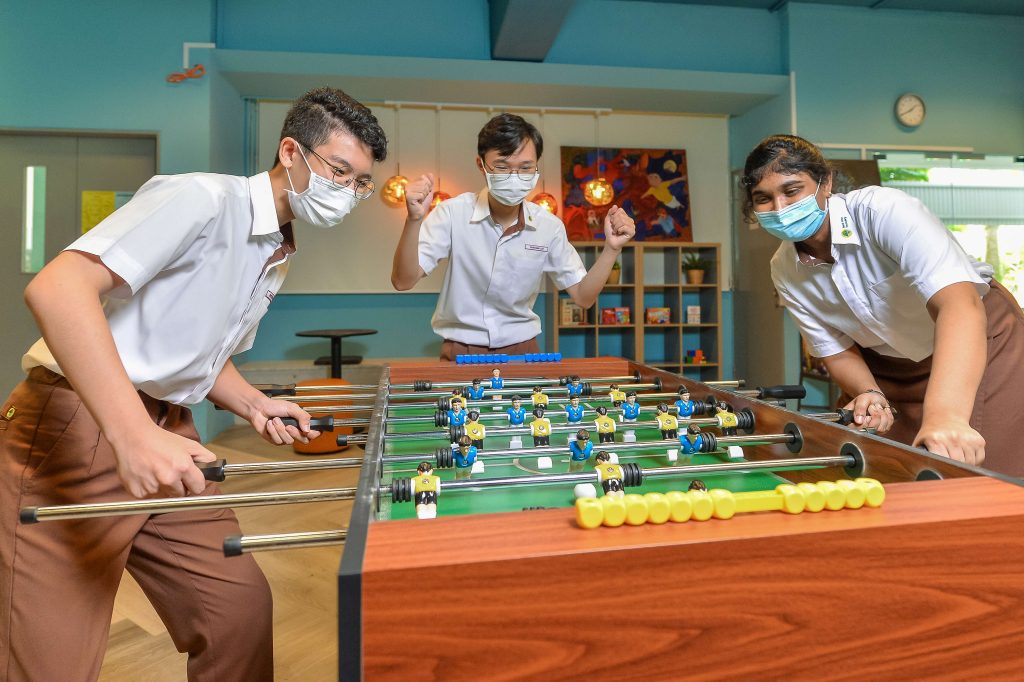
Ministry of Education file photo. Photo taken when Covid-19 pandemic safety measures were in place.
Growing network of helping hands
To Mr Shahul, who has been in the education sector for more than two decades, UPLIFT’s impact is clear to see.
“We were able to achieve a whole-village effect of support,” he says. “Thanks to the range of different partners and resources we could draw on, we are able to give students and their families the all-round help they need to move up the ladder.”
To TLC Ms Chia, the work can be a “complicated” undertaking, given that every student’s situation is unique. A new case plan is drawn up and resources are pulled together from scratch to meet their unique set of needs. But, she adds, “If this is what it takes, this is what it takes.” Full-time officers as well as volunteers attest to how they find fulfilment in their roles. Says volunteer befriender Ms Anjali, “It’s not really a volunteer activity for me, honestly speaking. I feel that the families are helping me, instead of the other way around. When I can do even a little bit for them, it gives me immense happiness.”
1 ComLink has since been enhanced and is known as ComLink+.



